Monday 14 September, 2020
Hi there. Hope you’re fine.
Yippee! We are moving towards resumption, are you excited at all? Come next week, the online wall will be broken down, we will see face to face.
Hence, we will be ramping up the topic we started last week.
Relationship between Constitution and Constitutionalism
Constitution is a document or the whole body of laws, customs, conventions principles as well as rules and regulations, according to which a state is governed or the powers of the organs of government are regulated. It also specifies the rights and duties of the citizens.

Constitutionalism on the other hand entails the power of government as specified or defined in the constitution. It also means that the constitution should be strictly adhered to regardless of who is in power. Or simply put, the constitution is supreme.
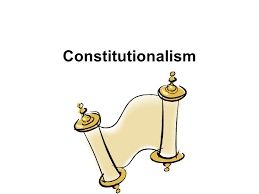
Features of Constitutional Government
- The law is supreme and people should be guided by the doctrine of rule of law
- The people’s rights should respected and safeguarded by the government
- The powers of government are separated and there is principle of checks and balances
- There should be independent judiciary
- There is existence of political parties through elected representatives are elected
- The freedom of press should be encouraged
- The right of people to vote and be voted for should be enhanced
Assignment
Write short notes on the following:
- Written Constitution
- Unwritten constitution
- Flexible constitution
- Rigid constitution
- Unitary constitution
- Federal constitution
Monday 7 September, 2020
Good day. Hope you’re good. Happy new month! It shall be fruitful for all of us in Jesus name.
Thanks to those who responded to the assignments. God bless you.
This week, we shall be discussing an important topic. We will try to explain it in detail. The topic is the Constitution.
Meaning of Constitution
A constitution id defined as an established legal framework which guides the affairs of a state. It is a legal document according to which a state or an organization is governed. It can also be defined as a body of rules and principles stating how the powers of governing a country are given and how these powers are to be exercised.
A constitution checks the excesses of government. It sets a limit to the exercise of power of government and excesses of the citizens.

Sources of Constitution
- Historical documents: these are the records of the past events such as past political development, people ways of life, and so on
- Acts of Parliament: these are laws establishing some government establishments. It is considered in enacting a constitution.
- Custom and Tradition: these are belief system, institutions norms and values people hold to an esteem.
- The Past Constitutions: past constitutions form the basis for a new constitution.
- Conventions: these are the acceptable practices in a given society. It forms part of the new constitution.
- Constitutional Conferences: these are past meeting where issues of importance regarding constitution are discussed. Constitutional conferences was held in 2005 and 2014 in Nigeria among others.
- Judicial precedents: these are past judgments on constitutional matters.

Features of Constitution
- Preamble: preamble declares the intention of the constitution.
- The Political Structure: it specifies the political structure of the given country.
- The Political Institutions: it defines the power and functions of the institutions and organs of government.
- Types of relationship that exist among the institution of government
- The party system: it contains the type of party system to be adopted in a country e.g. zero party, one party, two party or multi-party systems.
- Type of administrative structure: it contains the administrative structure of the government e.g. presidential, parliamentary et cetera.
- Human Rights: it contains the fundamental rights citizens enjoy e.g. right to life, right to freedom of expression et cetera.
- Fundamental objective of the state: it states the objective of the state.
- The process of amendment: it contains the process of amending the constitution.
- Citizenship: it states the processes of becoming a citizen of the given country.
- Term of Office: it states the tenure of office of the government official.
Assignment
- Differentiate between written and unwritten constitution. Give at least five (5) points
- State five (5) importance of a constitution to a state
Monday 31 August, 2020
Hi there! Hope you’re good.
You should be getting along with all what we are doing here. If you still find it difficult to get along, something is wrong somewhere, then. This could be the reason your response to assignment is still below expectations. Nonetheless, we will still do what we all need to do. I appreciate everyone who has been participating actively, may the Lord bless you all.
This week, we will learn something new. The topic is still on the arm of government. The one we are yet to talk about is Judiciary. Let’s go.
Meaning of the Judiciary
The judiciary is an arm of government that deals with the interpretation of law of the state. It deals with the adjudication of disputes and application of law to cases as the need arise in the state. It is seen as the last hope of a common man because the protection of the rights of individual is largely dependent on the fairness of the judicial arm of government i.e. the court system. In Nigeria, the judiciary is made up of levels of courts; for instance, it ranges from the Supreme, Appeal, High, Magistrate and Customary Courts. It consists of the judges who are knowledgeable enough in legal matters.

Characteristics of the Judiciary
- Impartiality: the judiciary must be impartial to dispense justice well among the people
- Permanence: it remains permanent irrespective of the change in government
- Political Neutrality: it must not be politically partisan or affiliate itself to any political party or movement.
- Professionalism: it consists judges and lawyers who are expert in various fields of the law.
- Stability: Judges and lawyers must be stable in office for as long as they are still active and are of a sound mind.
- Due Process: these are the procedures that must be followed to achieve a given task as regards the law.
- Judicial Immunity: judges are immune against criminal or civil litigation in the course of performing their official duties.
- Code of Conduct: the judiciary, like every other professions, has a code of conduct which regulates its activities.
Functions of the Judiciary
- It interprets the law
- It settles disputes between individuals, as well as government
- It punishes the law breakers
- It protects the fundamental human rights
- It can make law through the process known as judicial precedent or case law
- It can declare any act of legislature or executive unconstitutional or null and void
- It gives advice to the president in discharging his/her duty e.g. prerogative of mercy et cetera
- It administers justice on electoral matters
- It performs some other functions such as swearing of affidavit, granting license, performing marriage and so on.
Assignment
- What is independence of judiciary?
- Itemize five (5) problems facing judicial independence in Nigeria
- How can the independence of judiciary be guaranteed in Nigeria?
Monday, 24 August, 2020
Hello! Hope you’re good.
I am still not impressed given your responses to the assignments. It shows some of you are not following well. This is going to count when you resume to school. All these assignments, for those who have not been doing it, will be done in arrears. To avoid a piled up work for yourself, you had better start responding to it now, each week.
Iroegbu Ifunanya has been very consistent. I give it to her again. I saw responses from Victoria Ajayi and Oni Victoria. The two of you need to go beyond listing your points, you can give a short explanations; since this is an assignment. Beyond that, kudos to those attempts.
This week, we will continue with the concepts on the arms or organs of government, precisely the executive arm. Let’s keep the ball rolling.
MEANING OF THE EXECUTIVE ARM OF GOVERNMENT
The executive is the arm of government that is responsible for the implementation of law made by the legislature. It is the arm of government that initiates and implements policies of state. It is represented by the president or prime minister and his ministers or cabinet members at the centre, governor and his commissioners at the state level as well as chairman and the supervisory councilors at the local level. It also includes the arm forces, paramilitary forces (such as police, civil defence, etc), civil servants among others.

FUNCTIONS OF EXECUTIVE
- It implements or enforces the laws of the state
- It initiates and implements policies
- It supervises the administrative functions of the state e.g construction of roads etc.
- It appoints government officials e.g ambassadors
- It declares war against the internal and external enemies
- It represents the countries on official matters in other countries e.g. foreign policy
- The president has the power to pardon the offenders i.e. power of prerogative of mercy
- It prepares budget for the country
- It maintains law and order through the enforcement agents
- It gives assent to bills to become laws
- It protects the rights of the citizens
TYPES OF EXECUTIVES
- Single Executive: this is a situation where only one person occupies the position of the head of executive arm of government. This is common in the presidential system of government where a person is both the head of government and state. President Muhammadu Buhari is an example of single executive. Donald Trump of USA is another one, et cetera.
- Dual or Bicephalous Executive: this is a situation where two people control the executive arm of government. That is, two people occupy the position of head of state and government. This is common in a parliamentary system of government. Nigeria practised this type of executive between 1960 and 1966 where Tafawa Balewa was the Head of government and Nnamdi Azikwe was the head of state. The current relevant example is the Great Britain. The Queen is the head of state, while the prime minister is the head of government.
- Plural or Collegial Executive: This exists where more than two people control the executive arm of government, such that each of the collegiate has equal authority in decision making process. Example of this is Switzerland.
ASSIGNMENT
- Find out how executive is being controlled in the exercise of its functions. Write and explain at least five (5) of them.
Monday 17 August, 2020
Hi there! Hope you’re keeping well. By now your cheeks should be chubbier. Don’t eat mummy’s rice and chicken alone, make sure there is a commensurate synergy between your eating and reading habits. Don’t worry, the school will soon resume.
Iroegbu is still my student of the week. You can give her a round of applause from where you are, she can hear the sound of your applause. If you want us to clap you too, make sure you do your assignments consistently.
It is another week, we are going to start a new topic. Let’s go as we unravel it.
(Make sure you copy this note in your notebook)
Meaning of Legislature
Legislature is one of the three arms of government which are responsible for the day to day running of the state. It is responsible for the law making in the state. That is the major function of the legislature is law making. It can also serve as a forum to discuss the policies, programmes, ideas and where important decisions of government are made. It can also be called a parliament. In Nigeria, it is called National Assembly which comprises the House of Representatives and the Senate. In USA, it is called the Congress and so on.

Functions of the Legislature
- Its major function is to make law
- It amends the existing laws
- It approves the budget prepared by the executive
- It investigates the activities of other arms of government
- It approves, modifies or rejects the appointment of senior officials in government e.g. ministers, ambassadors etc.
- It controls and questions the activities of other arms of government
- It has the power to impeach the president
- It ratifies treaties and other external agreements of the government e.g. external loans
Types of Legislature
There are two types of legislature:
Unicameral legislature: this is a type of legislature with one chamber e.g. all the 36 states in Nigeria have a unicameral legislature with one chamber that is House of Assembly. Other examples are Bulgaria, Israel and others.
Bicameral legislature: it is a legislative house with two chambers. Nigeria and USA, at the federal level, operates this type of legislature; that is House of Representatives and the Senate. Others are Britain (House of Common and House of Lords) and so on.

Assignment
Itemize and explain the stages of passing bill into law by the legislature
MONDAY 10 AUGUST, 2020
Top of the day to you. How has been the classes since morning? I believe you enjoyed it. Keep it up.
I discovered your response to the assignment is going down by the day, this is not good enough. Only Iroegbu Ifunanya has been consistent; she is trying her best. She hasn’t missed any of the assignments since we have started. All of you should emulate her. She’s my best student of the week, given her responses, so far.
Today, we will consider a topic opposite to our last week topic. So, let’s keep the ball rolling.
(Make sure you copy this inside your notebook)
MANING OF PRESIDENTIAL SYSTEM OF GOVERNMENT
Presidential system of government is the one in which the power as head of state and government is vested in one person, known as president. That is, the power of executive is vested in the president. In presidential system, power and functions of government are derived from the constitution, thus, the constitution is supreme. Nigeria started practising presidential system since 1979 during which Alhaji Shehu Shagari was elected as the first executive president. He was both the head of state and government. Nigeria is still practising presidential system of government since 1999. Other example of presidential system of government is United Sates of America, among others
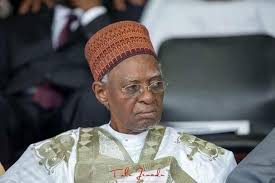

FEATURES OF PRESIDENTIAL SYSTEM OF GOVERNMENT
- The power of head of state and government is vested in one person known as the executive president
- The president performs both the executive and ceremonial functions
- The president is popularly elected by the electorates, during the general election
- The whole country is the constituency of the president
- He can appoint members of his cabinet from anywhere within the country; both within and outside his party
- He is elected for a fixed term of office. For instance in Nigeria, the president stays in office for 4 years and two terms, if re-elected
- Ministers in the presidential system are individually responsible for their actions
- The president can dismiss any member of his cabinet or entirely reshuffle them
- The three organs of government and their functions are separated and clearly spelt out respectively
- The president and governors can be impeached from office if found guilty by the parliament
- Official opposition is not tolerated
- It practises bi-cameral legislature
- Checks and balances are very effective
- The supreme court has the power of judicial review of the activities of the executive
- There is room for rule of law to thrive
ASSIGNMENT
- State 5 advantages of presidential system of government
- Highlight 5 functions of the president as the head of government
Monday 3rd August, 2020
Good day! How has been your day? Awesome? That’s great.
Today, we are going to discuss another important topic. Kindly pay a keen attention as we proceed.
Today’s topic is Parliamentary System of Government. What does it mean and what are its attributes? Let’s proceed.
(write this in your notebook)
MEANING OF PARLIAMENTARY SYSTENM OF GOVERNMENT
Parliamentary system of government is defined as a regime in which two people are at the helm of government, as head of state and head of government. These two people perform the functions of government individually without overlapping the function of the other. For instance, the prime minister is the head of government while the queen, (king, governor general or president) is the head of state. Head of government performs the actual function of government like day to day running of government; head of state performs the ceremonial functions like attending events and hosting of national flag et cetera. Examples are the Great Britain, Nigeria between 1960 and 1966, among others.

Source: Internet
It should be noted that the prime minister and his cabinet members are drawn from the parliament.
FEATURES OF PARLIAMENTARY SYSTEM OF GOVERNMENT
- The head of state is different from the head of government
- The prime minister is not popularly elected but appointed by the head of state
- Cabinet members are drawn from the parliament
- Legislative and executive powers are fused in the cabinet
- Members of the cabinet are collectively responsible for any decision taken by them
- Recognition of official opposition party
- The executive members can be removed from office through a vote of no confidence
- The opposition party can form their own cabinet in preparation to take control of power. This is known as shadow cabinet.
- Loyalty is expected of the party members to their party.
- The head of state performs ceremonial functions
- The party controls the prime minister and he/she is expected to obey the party
- The prime minister has the power to dismiss any minister from the cabinet.
- There is possibility of coalition government, if the leading party in a general election does not win absolute victory.
- The parliament is supreme. In Great Britain, the upper chamber serves as the highest court of appeal.
Assignment
- Write 5 functions of the prime minister in a parliamentary system
- What are 5 demerits of parliamentary system
Monday 27 July, 2020
Good day, hope class has been interesting since morning.
Kindly note that all the topics we’ve been teaching and learning in this class may be substantive for third term. Start taking it serious as if it is a normal classroom interactions. Pay attentive, write your notes, do your assignments and other necessary activities you are asked to do.
This week, we will be considering the other side of last week topic; REPUBLICAN GOVERNMENT
(Kindly copy this note in your notebook)
MEANING OF REPUBLICAN GOVERNMENT
Republican government is defined as a form of government with the Head of State popularly elected by the people of a sovereign state, either as a ceremonial or an executive president for a fixed term of office. This is a contrast to monarchy where people ascend to the throne through hereditary. Nigeria became a republican state in 1963. Nigeria has operated 4 republics since 1963 i.e. 1963-1966, 1979-1983, 1989 and 1999 – present. Other examples of a republican government are USA, Cameroun, India et cetera.

Fig. 1: Nnamdi Azikwe: the first symbol of republican government in Nigeria
Source: Internet
FEATURES OF REPUBLICAN GOVERNMENT
- Elected representation. Representation is based on popular election e.g elected president and members of parliament.
- Popular election. People are brought to the public offices through popular election
- Periodic election. Elections are held periodically, for instance in Nigeria, it is held in four years
- Limited power. There is constitutional limitation to the exercise of power.
- Rule of law. There is constitutional supremacy or supremacy of the law.
- Political accountability. Leaders are held accountable by their subjects.
- Fixed term of office. There is fixed tenure of office for political office holders. In Nigeria, executive leaders can hold office for 4 years but can be re-elected for another 4 years.
- Popular sovereignty. Popular sovereignty resides with the people. They have the ultimate power to elect or remove a leader.
- Equal political opportunity. All citizens have equal voting power and power to hold political office.
Assignment
- Define republican government
- State 5 essential attributes of republican government
Monday 20th July, 2020
Top of the day to you!
This week we will be examining the concept of MONARCHY.
(Make sure you copy the note in your notebook)
MEANING OF MONARCHY
Monarchy is a form of government headed by a king or queen in whom the overall sovereign power of the state resides.
It is also defined as a form of government under the leadership of a traditional leader such as king, queen or emperor.
These people are referred to as monarch. Example of countries which are famous for monarchy are Britain, Saudi Arabia, Morocco, et cetera.
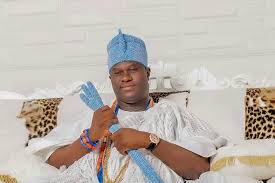
Source: Internet
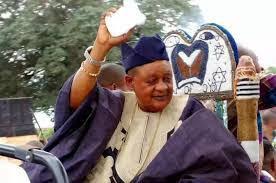
Source: Internet
TYPES OF MONARCHY
There are two types of monarchy:
- Absolute Monarchy: Absolute monarchy is an ancient form of government in which the monarch exercises total control of power. That is, his/her power is not limited by any constitutional provision. His/her actions and utterances are always correct while his/her laws are binding on his subjects. Examples of this are Kings in the old Oyo Empire, Fahd of Saudi Arabia, King of Morocco and so on.
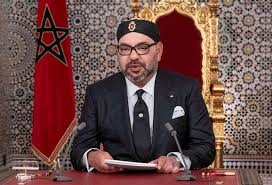
Source: Internet
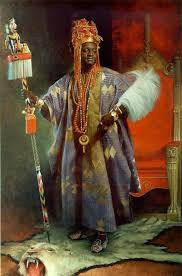
Source: Internet
- Constitutional Monarchy: This is a form of government in which the monarch derives his/her power from the constitution. That his/her power is limited, as he/she cannot enjoy unlimited power. In this case, the monarch is a ceremonial leader, alongside the head of government who could be prime minister, in the case of Great Britain.
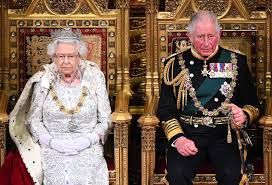
Source: Internet
FEATURES OF MONARCHY
- It is a government headed by a king or queen
- There is no fixed term of office. The king can rule for life
- Ascendance to the throne is hereditary in nature
- It is a natural institution
- A monarch must be obeyed without questioning
- He/she represents the supreme power
- It is based on age long cultural practices with the use of customs and conventions
- A monarch exercises executive power, in most cases
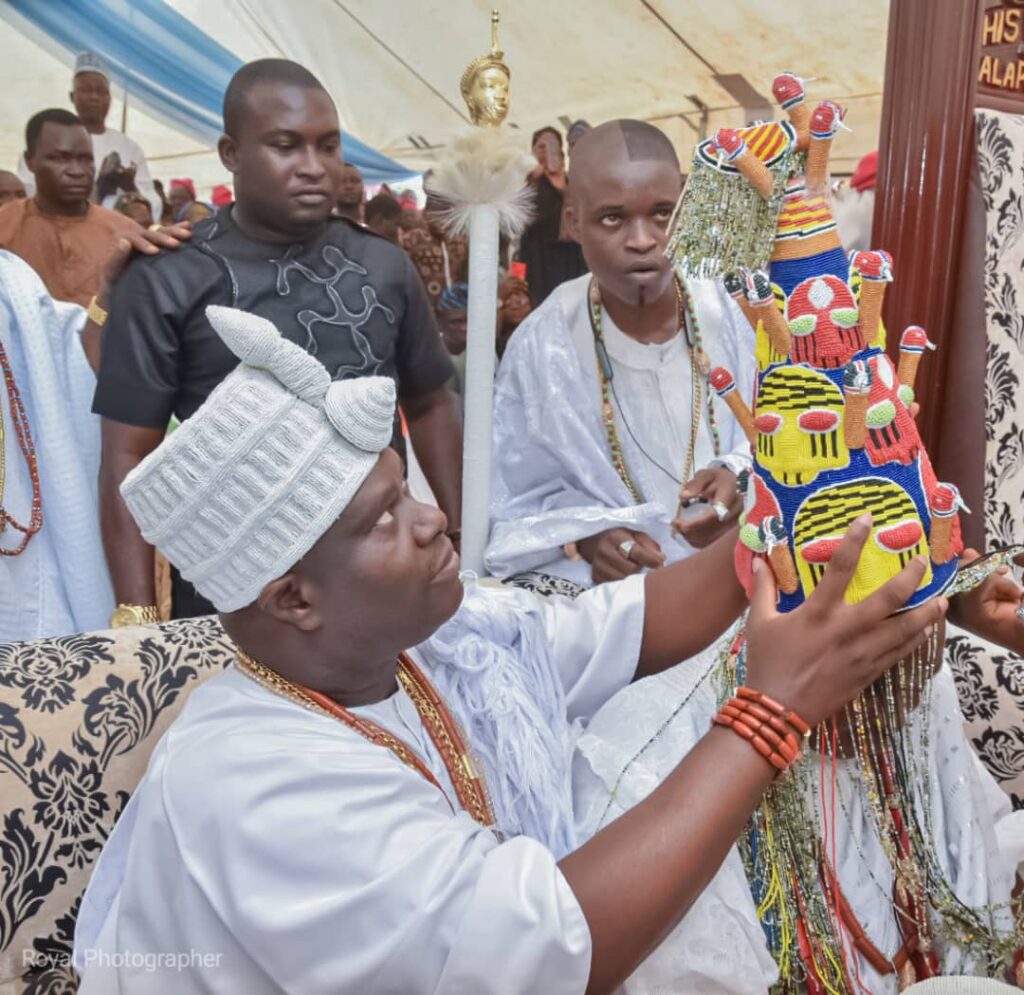
Source: Internet
Assignment
- Write 5 merits and 5 demerits of monarchy as a system of government
Monday 13 July, 2020
Top of the day to you!
Let me register my displeasure on the way you responded, so far, to the assignment. Some did not even respond at all. This is not good enough as it will tell on your performance when the school finally resumes. Please do all you could. God bless you.
I receive responses to last week assignment. Of all the responses, only Iroegbu Ifunanya did wonderfully well. Others tried but not to the satisfaction. Your ability to respond to questions well starts from your ability to interpret it well. For instance, last week question 2 asked why you would recommend confederal system for a group of sovereign states. It simply asking you to state the benefits of confederal system. Only Iroegbu was able to do that. Other responses came from the following students:
- Kayode-Ajibola Kanyinsola
- Fajemiroye Timileyin Joshua
- Oyekola Oluwadamilola Gloria
The responses continue to rescind, please let me know the reason for this when you are sending your response to the assignment for this week.
This week, we will continue the last week topic, Confederal System: Demerits and the differences between Federal and Confederal Systems.
As a way of revising the topic, confederla system has been defined as:
Meaning of Confederal System
It is a voluntary association of sovereign states with a recognized authority in certain matters that affect them such as foreign relations, defence, currency et cetera or a political arrangement where sovereign or independent states come together to form a loose union with a week center.
(You can go over the last week topic to get a comprehensive review).
(Make sure you copy this note from here into your notebook).
Demerits of Confederal System
- There is high tendency for secession (breaking away) of the component states
- It makes citizens to display divided loyalty to the confederation and to their country
- It can breach unity and national integration
- The center is weak and therefore cannot pass binding laws on the component states
- It can bring about instability of the union
- There is no effective central authority
- Policies discussed may not be effectively carried out in the respective states
- Absence of standing army may delay military decision
Differences between Federal and Confederal Systems
| S/N | Federal System | Confederal System |
| 1. | It has a strong centre | It has a weak centre |
| 2. | The centre is more powerful than the component units | The component states are more powerful than the centre |
| 3. | The constitution is supreme and always written and rigid | There is no constitution and if there is any, it is flexible |
| 4. | The component units cannot break away (secede) | Any of the component states can break away any time it deemed fit |
| 5. | The central government controls the armed forces | The component states controls its own separate armed forces |
| 6. | It is a stable political system | It could be prone to instability |
| 7. | Sovereignty resides with the central government | Sovereignty resides with the component states |
| 8. | Powers are shared between the centre and the component units | There is no power sharing. The sovereignty of the component state is indivisible |
| 9. | Component units coordinate with the central government but at the same time autonomous | Component states are sovereign and cannot share its power with the centre or other component states |
| 10. | There are levels of government such as federal, state and local government | There is no level of government as all the member states are equal |
Assignment:
1. Why is confederal system not necessary? Give at least 5 reasons
Monday July 6, 2020
Good day. Welcome to class.
I saw the assignment from the following students:
- Oyekola Oluwadamilola Gloria
- Fajemiroye Timileyin Joshua
- Kayode ajibola kanyinsola
- Oluwanifemi Awoyele
- Iroegbu Ifunanya Omowumi
About three or four of you did not submit. Kindly do it together with what we are going to do today. God bless you all.
Our topic for today is Confederal Government. We will be explaining its meaning, features and merits.
NB: Do not forget to copy the note in your notebook.
Meaning of Confederal System
Confederal system is defined as a political arrangement where sovereign or independent states come together to form a loose union with a week center. It is a voluntary association of sovereign states with a recognized authority in certain matters that affect them such as foreign relations, defence, currency et cetera.
It should be noted that in this arrangement, there is no viable central authority. All the component units are jointly responsible and there is none of them which could imposed decision on others. This is the essence of the weak centre. So that if any of them is willing to leave the union, it could leave without restriction.
Examples of these are United Nations Organisation (UNO), European Union (EU), African Union (AU), among others. Senegambia of 1982, which a union between Senegal and Gambia is also a good example.


Source: Internet
Features of a Confedral System
- Power resides with the component states
- The confederation is a loose union, any member could exit when it deemed fit
- Consultation is made among all the component states before any decision could be taken
- Absence of national army. The union depend on the national army of the component states
- There is regard for right of secession. As explained earlier, any member could secede when it deemed fit
- The political system could be unstable and non-permanent unlike federal system
- Membership of the union is voluntary
- Each member state has control over its own internal affairs
- The constitution is highly flexible
- It is not a sovereign entity. Only the component states are sovereign


Source: Internet
Merits of a Confederal System
- It makes the strong and weak state coexist as a strong entity. Thus, make them to pool resources together or fight their common enemies.
- It preserves the sovereignty and identity of the component states
- It allays the fear of domination of the small states by the bigger states
- It makes them to speak with one voice because the operate the same foreign policy
- It allows each component state to develop their own state and maintain its sovereignty while still exits as a part of the union.
- The component states can make and enforce their own laws on their citizens
- They can also enforce their economic initiative independently without affecting their status in the union.
- It enhances joint decision making process and consensus
- Market of the member states are expanded because it can accommodate the goods from other member states
Assignment
- Define Confederation
- Why would you recommend a confederal system for a group of sovereign states?
Monday 29 June, 2020
Hey there, top of the day to you!
Welcome to class. How has class been since morning?
Let me acknowledge the responses of the following students to the assignment:
- Fajemiroye Timileyin J. – Unitary System
- Victoria Olamide A. – Political Participation, Checks and Balances, Unitary System and Federal System
- Iroegbu Ifunanya O. – Political Participation, Unitary System and Federal System
- Obasohan Feranmi – Unitary System, Federal System
- Oluwanifemi Awoyele – Unitary system, Federal System
- Kayode Ajibola K. – Unitary System, Federal System
- Iniola Kolade – Unitary System
I did not receive assignment from Oni Victoria, still. If you know her, you can check on her.
Every assignment is important in this class as proper record is being kept for the ones received so far. Make sure you do it to the best of your ability.
Today, we will continue with the systems of government we have treated so far. We will do a little revision and talk about the differences between unitary and federal systems of government.
REVIEW OF PREVIOUS TOPICS
We have defined unitary and federal systems of government thus:
UNITARY SYSTEM OF GOVERNMENT
Unitary system of government is a type of government in which there is one source of authority. Or a system of government in which all governmental powers are concentrated in a single central authority. For example, Britain, China, Italy, and so on.
And federal system of government thus:
FEDERAL SYSTEM OF GOVERNMENT
Federal system is defined as a system of government in which there constitutional division of powers between the central government and the component unit(s). Or a system of government with at least, two levels of government, mostly the central and regional or state governments. Examples are Nigeria, United States of America, India, Brazil, Canada, Switzerland et cetera.
You can go over the previous notes for detailed explanation, if you were not part of the lessons.
From previous and above explanations, it is clear that the two systems are mutually exclusive. That is they are opposite of each other. Then, we can talk about the differences that exist between them.
(Kindly copy the note on the differences of the two systems of government only, as written below)

Source: www.study.com
DIFFERENCES BETWEEN UNITARY AND FEDERAL SYSTEMS OF GOVERNMENT
| S/N | UNITARY SYSTEM OF GOVERNMENT | FEDERAL SYSTEM OF GOVERNMENT |
| i. | There is centralisation of powers | There is decentralisation of powers |
| ii. | Only one source of authority is recognised | At least, two levels of authority is recognised |
| iii. | The component units are subordinate to the central authority | The component units are autonomous and co-ordinate in the area of administration |
| iv. | Constitution is not necessarily supreme | Constitution is supreme |
| v. | Component units derive their powers from the central authority in form of delegated power | Component units derive their powers from the constitution |
| vi. | It operates a flexible constitution | It operates a rigid constitution |
| vii. | In some unitary systems like United Kingdom, the upper chamber of the parliament may serve as the highest court | Supreme court serves as the highest court |
| viii. | It is operated in a homogeneous nation. That is a nation with minimal or no cultural differences. For example Britain | It is adopted in a heterogeneous nation. That is a culturally diverse nation. For example Nigeria |
| ix. | There is fusion of government powers | There is separation of powers |
| x. | It consumes less time and recourses | It can be time consuming and expensive to run |
| xi | Decision making process could be quickly enhanced | Decision making process is usually slow |
Assignment
- State five (5) differences between unitary and federal system
- Why would a country not adopt a federal system? Give at least five (5) reasons
Monday 22 June, 2020
Hey there! I welcome you to today’s class. I believe class has been interesting since morning? Well done.
I noticed Inioluwa Kolade and Obasohan Feranmi submitted assignments. However, I did not see that of Oni Victoria and Oluwanifemi Awoyele. All these assignments will be compiled and your written notes will be marked when the school resumes. If you have not been submitting your assignment or writing your notes, try to go over the previous ones given so far and do the needful. Make sure you do it to the best of your ability. All your assignment are being graded and may form the part of your continuous assessment.
It is a new week, we will be discussing federal system of government: its meaning, features and reasons for adoption. Let’s keep the ball rolling.
The Meaning of Federal System
Federal system is defined as a system of government in which there constitutional division of powers between the central government and the component unit(s). Note that the component units could be region, state or local.
It is a system of government with at least, two levels of government, mostly the central and regional or state governments. However, in Nigeria, there are three levels of government, that is federal, state and local governments. These levels are independent and co-ordinate in their respective sphere of administration. They all derive their power from the constitution.
Examples of a federal system are Nigeria, United States of America, India, Brazil, Canada, Switzerland et cetera.
Source: Internet
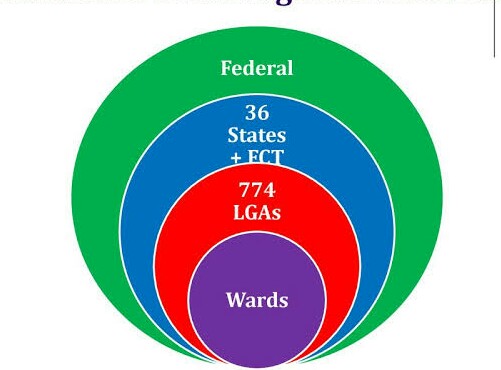
Source: Internet
There are three major powers that are being shared in a federal system, viz; exclusive, concurrent and residual powers:
- Exclusive power: These are the items given to the federal government to legislate on. They include currency, immigration, defence, aviation and so on.
- Concurrent power: These are the items reserved for federal and state governments. These include health, education, trade, agriculture, insurance and others.
- Residual power: They are items reserved for the state but can be delegated to the local governments. These are inheritance, chieftaincy matters, land, market, rate, primary health care and maternity centres, festivals among others.

Source: Internet
Features of a Federal System
- Government powers are shared constitutionally between the central government and the component units
- Each level of government derives its power from the constitution
- Government powers are separated among the organs of government
- In case of conflict on any matter between the central government and the component units, central government interest prevails.
- It always adopts written and rigid constitution
- The process of amending the constitution is always cumbersome
- There is supremacy of constitution over everyone and every matter
- It adopts supreme court at the centre which is the final court of appeal in the land
- It operates bicameral legislature at the centre.
- Organs of government found at the centre are also found at the component unit(s).
| Legislature | Executive | Judiciary | |
| Federal | National Assembly: Senate and House of Representative | President and Ministers | Courts |
| State | House of Assembly | Governor and Commissioners | Courts |
| Local | Councilors | Chairman and Supervisory Councilors | Courts |
Reasons for Adoption of Federal System
- The desire for union in a multi-cultural state
- Geographical proximity of communities to form a strong nation
- Cultural diversity among the people of a country
- Fear of domination among the minority groups
- Availability of resources be it human or material.
- Large size and population of a country may prompt a country to adopt federal system
- Past historical experience such as colonial heritage
- Sovereign nations may come together to form a federating unit for security reason.
Assignment
a. Define federal system
b. What are the five merits and five demerits of federal system?
This form is currently undergoing maintenance. Please try again later.Monday 15/06/2020
Good day students. Hope you’re keeping well.
I noticed Oni Victoria and Oluwanifemi Awoyele responses to last week assignment. You both did well but there is room for improvement. Please, keep it up.
We have come to the end of revision for the previous term’s topics. This week, we shall be peeping into third term topics. So, find below the scheme of work for third term. Write it in your notebook, we will mark it when school resumes.
SS 1 GOVERNMENT THIRD TERM SCHEEM OF WORK
| WEEKS | TOPICS | SUB TOPICS |
| ONE | Types and Characteristics of Government: | Unitary system and federal system of government (with their features and reasons for adoption). |
| TWO | Types and Characteristics of Government | Confederal system and Monarchical system of government (with their features). |
| THREE | Types and Characteristics of Government | Republican system, Parliamentary system and Presidential system of government (with their features). |
| FOUR | Structures and organization of Government. | The Legislature: Meaning, Functions, types of legislature, stages of passing bill into law and control of legislature. |
| FIVE | Structures and organization of Government | The Executive: Meaning of executive, functions of executive and controls of executive. |
| SIX | Structures and organization of Government | The Judiciary: Meaning of judiciary, functions, judicial independence and problems facing judicial independence |
| SEVEN | Constitution: | Meaning of constitution, sources of constitution, features of constitution, types and functions. |
| EIGHT | Constitution | Relationship between constitution and constitutionalism. |
Meaning of Unitary System of Government
Unitary system of government is a type of government in which there is one source of authority.
It can also be defined as a system of government in which all governmental powers are concentrated in a single central authority.
Or simply put a system of government in a single entity in which the central government is ultimately supreme.
Example of a unitary system is Britain, China, Italy, etc.
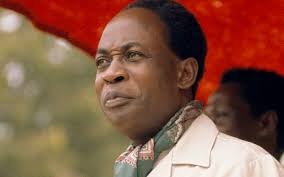
Source: internet

Source: internet
Features of a Unitary State
- It is best practised in a homogeneous state. That is where there is no contrast in socio-cultural differences e. g Britain
- The component units are subordinate to the central government. So that no component unit can exercise the power of its own except the one delegated by the central authority.
- It is usually practised in a small country
- Powers of government are highly centralized. So there is no constitutional division of powers
- The constitution only recognized the central government
- The constitution is not necessarily supreme but there is supremacy of parliament
- The constitution in a unitary system is usually flexible
- Absence of conflict of interest because all powers are concentrated in the central government
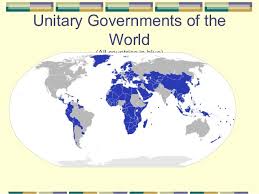
Source: internet
Assignment
- Define Unitary system of government
- List and explain the reasons for the adoption of unitary system
Monday 8th June, 2020
Hi students, how are you today?
Kindly take note of these two instructions before we take today’s class:
- Make sure you copy all the notes I’ve been given since the beginning of this online class in your note book. We will check when the school resumes fully.
- I have not been seeing your assignment. Make sure you do all the assignments given satisfactorily.
Thanks.
The topic for today is:
Political Participation
Political participation is defined as the voluntary activities shared by members of a society in the selection of their leaders which makes them to directly or indirectly involve in the running of public affairs of their country.
It can also be defined as the process by which citizens get themselves involved in the political activities and decision making process of their country. Such as voting during the election, belonging to a political party, criticizing government policies constructively among others.


Fig. 1 & 2: Nigerians protesting against bad government policy
Source: Internet
Forms of Political Participation
- Voting as an electorate during an election
- Addressing people at the campaign rallies
- Contesting for elective post
- Belonging to a political party
- Attending party meeting and campaign rallies
- Holding public or party offices
- Wearing of party badges and emblems
- Serving as party agent or party representative for a candidate during election at the polling unit
- Canvassing for fund for a party
- Sponsoring political party morally and financially
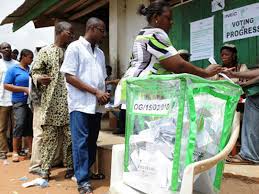
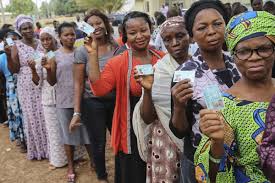
Fig. 3 & 4: Nigerians casting their votes during election
Source: Internet
Reasons for Political Participation
- To seek power over others
- To improve their self-esteem
- To satisfy their need for friendship, affection and social relations
- To render services to the nation and the world at large e.g management of national resources
- To make money
- To understand the world and control events
- It serves as occupation for some people
- To involve themselves in the decision making process
- To correct the ills of a society
- To correct the failure of the past government
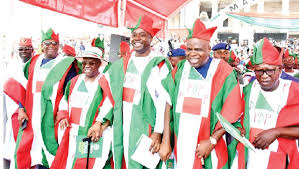
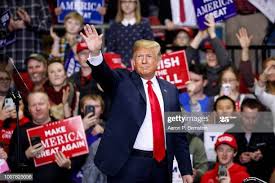
Fig. 5 & 6: Some political leaders holding rallies
Source: internet
Assignment
- Define political participation
- What are the factors that can prevent people from participating in politics?
- Discuss the factor that can enhance political participation
Good day students. Hope you’re keeping well.
Before we start today’s class, I noticed that some of you have not been attempting the assignment given under each topic. Some of you did but not to my satisfaction. Please, answer the questions to the best of your ability. Thanks.
Today’s topic is:
Checks and Balances
The principle of checks and balances is defined as a way of using power to check power.
It is a process by which the three organs of government check the excesses of one another though the constitutional means.
This is to ensure fair play, balance of power and remove tendency for the misuse of power by any organs of government.

Source: www.hakonlystad.no
Merits of Checks and Balances
- It prevents the excessive use of power by any arms of government
- It fosters orderliness and efficiency in government
- It ensures that people’s rights are respected
- It enhances healthy relationship among the three organs of government
- It prevents the emergence of a dictator in government
- It helps in controlling powers among the organs of government
- It facilitates thorough decision making process
Demerits of Checks and Balances
- It can lead to unwelcomed interference in the affairs of other arms of government
- The veto power and prerogative of mercy of the president negate the application of checks and balances
- The impeachment clause can make the executive a puppet to the legislature
- It can slow down decision making process
- It is not suitable in the time of emergency
- It can be time consuming
- It can lead to lobbying of the legislature by the executive

Source: www.youtube.com
Separation of Powers and Checks and Balances
One of the arguments against the principle of checks and balances is that it negates the principle of separation of powers, especially in the presidential system of government. The following are the arguments against the principle of checks and balances:
- The power of the president to veto parliamentary bill: This happens when the elected head of state to refuse assent to a legislative bill (proposed law) that has been passed by the legislature. This may pose a constraint to the law making power of the legislature.
- The need for the president to give assent to the bill before it becomes law is an overlapping function of the executive.
- The appointment of the judges by the president may serve as an undue interference in the judicial function.
- The power of prerogative of mercy by the president constitutes an overlapping on judicial function.
- The power of the legislature to approve the nominees of the executive is an interference on the executive function.
- The power of the legislature to approve the annual budget and major policies of the executive may constitute a constraint on the executive function.
- The power of the legislature to impeach the president is a major interference on the executive function.
- The power of judicial review in which the judiciary can declare the activities of the legislature and executive null and void can also constitute interference.

Source: www.upfront.scholastic.com
Assignment
- How will you define checks and balances?
- How does the principle of checks and balances negate the theory of separation of power in a presidential system of government? Give five (5) reasons.
Separation of Powers
Meaning of Separation of Powers
Separation of powers is defined as the division of government powers among the three organs of government, in such a way that each of them concentrates on its own sphere of functions without necessarily overlapping into the functions of others.
The three organs of government as earlier noted are legislature, executive and judiciary. Separation of powers is prominent in the presidential system of government. In the parliamentary system of government, powers are rather fused among the organs of government.
Merits of Separation of Powers
- It removes excessive use of powers
- It enhances best performance and efficiency in administration
- It helps to ensure the application of the principle of checks and balance
- It promotes stability in government
- It enhances freedom and liberty of the citizens
- It fosters peaceful atmosphere in government
- It is democratic
- It removes the dominance of one arm of government over others
- It prevents the concentration of power in one arm of government
- It safeguards the rights of the citizens
Demerits of the Separation of Power
- It is not suitable in the time of emergency
- Rigid application of separation of powers can hinder smooth running of government
- It can slow down decision making process
- It might be difficult to achieve in toto
- It can affect performance in government
Separation of Powers in the Presidential System of Government
As noted above, separation of powers is more pronounced in the presidential system of government for the following reasons:
- The ministers are individually responsible to the president who appoints them
- The president and the ministers are neither members of the legislature nor judiciary
- The independence of judiciary is guaranteed
- The judiciary is separated from the other arms of government
- Each function of the arms of government is clearly spelt out i.e. legislature makes the law, executive implements the law, while judiciary interprets the law among others.
- There is less interference in the functions of government except where is it permitted by law i. e. delegated legislation
- The principle of checks and balances is in operation
Separation of Powers in the Parliamentary System of Government
There is fusion of powers in the parliamentary or cabinet system of government as noted above for the following reasons:
- Members of the cabinet (executive) are also members of the parliament (legislature)
- The House of Lords in the Britain is the highest court of appeal
- The Lord Chancellor, who is a minister, presides over the court of appeal. He is also part of the legislature; he is a member of the all the arms of government.
- Minsters take part in the parliamentary proceedings, they can initiate laws and issue statutory orders
- There is overlapping of government functions
Assignment
- Define Separation of Powers
- Justify the adoption of separation of powers in modern government
- Compare Separation of Powers in the Presidential System of Government and Parliamentary System of Government
Meaning of Delegated Legislation
Delegated legislation is defined as the laws made by other arms of government other than the law making body (legislature) but has the approval of the legislature. For example, bye laws, order-in-council, warrants etc.
Types of Delegated Legislation
- Bye Laws: These are laws made by the local government authorities or public corporation (e.g. Nigeria Railway Corporation) for smooth running of government.
- Order in Council: This is a provision made for the head of state to make laws. Executive order, which gives the president to make law on certain interest, is a good example of this.
- Provisional Order: This is provided under the law to enable individuals in authorities or bodies such as ministers, to make laws for a specific period.
- Statutory Instrument: It is also known as Ministerial Order. They can be issued by the ministers or commissioners as conferred on them by the Act of Parliament.
- Warrant: This is issued for the law enforcement agent (e.g. Police) to search for a suspect or a warrant by the high court judge for a person to appear before a court to give evidence or act as a testator.
- Rules for Professional Bodies: These rules guide the professional bodies in their entire activities. Example of a professional bodies is Nigerian Union of Teachers (NUT), Nigerian Medical Association (NMA) etc.
- Special Procedure Order: This is privilege given to the ministers which could only be effected after 14 days of approval by the parliament, except there is a petition against it from the public.
Reasons for Delegated Legislation
- It reduces the workload of the parliament.
- It is useful in the time of emergence
- It enhances quick decision making process by the executive
- It saves time
- It helps where technical languages is required in policy formulation
- It enhances efficiency and precision
- It helps in adapting to the changing situation and
- It enhances political participation from various levels of government
Assignment
- Define delegated legislation
- Mention and explain four (4) types of delegated legislation
- Of what importance is delegated legislation to the modern government?
Note: Write your name, class and subject when answering the questions above in the form provided.
